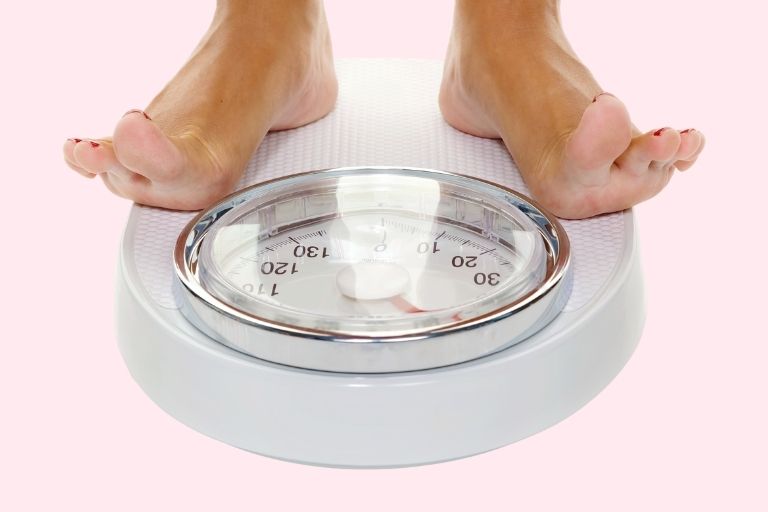ADHD (Attention-Deficit/Hyperactivity Disorder) is a neurodevelopmental disorder characterized by inattention, hyperactivity, and impulsivity. Medication and therapy are standard treatments, although more people nowadays are becoming interested in nutritional approaches that can help manage ADHD symptoms. When it comes to diets, do keto and ADHD make a good pair?
The ketogenic or “keto” diet is a very low-carb, moderate-protein, and high-fat approach that induces a metabolic state called ketosis.
The potential benefits of this diet for brain function are due to the reduction in blood glucose and increase in ketone bodies, which can boost energy in brain cells (1).
In this guide, we’ll examine the relationship between keto and ADHD symptoms. Our goal is to understand how consuming excess sugar and carbs — which is usually the case with standard diets — as well as other nutritional factors can worsen ADHD, and how keto can be a good option.
What is ADHD?
A common mental disorder that affects children, as well as adults, ADHD or Attention-Deficit/Hyperactivity Disorder can significantly impact a person’s daily functioning and quality of life. The exact causes of ADHD remain unknown, although studies have linked the condition to genetics, exposure to environmental risks during pregnancy, and low birth weight (2).
The primary symptoms of ADHD include:
Inattention
Individuals with ADHD often struggle with maintaining focus, paying attention to details, organizing tasks, and following instructions. They may easily become distracted, forgetful, and have difficulty completing tasks.
Hyperactivity
Hyperactivity manifests as excessive motor activity, such as fidgeting, restlessness, and an inability to stay seated or engaged in quiet activities. Children with hyperactivity may run or climb excessively and have difficulty playing or engaging in activities quietly.
Impulsivity
Impulsivity refers to acting without thinking about the consequences. People with ADHD may have difficulty waiting their turn, frequently interrupt others, and struggle with impulse control. This impulsive behavior can lead to problems in social relationships and decision-making.
Given that ADHD can persist into adolescence and adulthood, it affects academic and occupational performance and personal relationships.
Can the Keto Diet Help Reduce ADHD Symptoms?
Many families have experienced an improvement in their child’s symptoms after trying the keto diet, but it’s also important to keep in mind that keto doesn’t work for everyone. Proponents of the keto diet suggest potential mechanisms, such as its ability to stabilize blood sugar levels, increase healthy fats like omega-3s, and improving energy metabolism, among others.
Let’s dive into each mechanism below:
Stabilizes blood sugar levels
The keto diet reduces carb intake to less than 50 grams, which prevents drastic fluctuations in blood sugar levels. As a result, mood swings and difficulties with attention and focus are reduced.
According to an older study conducted at the Yale University School of Medicine, sugar ingestion may contribute to hyperactivity problems in children (3). On the keto diet, foods that spike blood sugar are avoided, such as grains, pasta, juice, soda, cereals, and traditional desserts.
The keto diet includes foods rich in omega-3 fatty acids
An article published at ADDitude, an ADHD magazine, notes that children with ADHD have lower blood levels of omega-3s — about 38% lower on average than those without the condition. There is a possibility that this is genetic (4).
The keto diet often includes foods rich in omega-3 fatty acids, which have been associated with improved cognitive function and mental health.
Although more information regarding omega-3’s effectiveness is needed, studies have found that supplementing with omega-3s significantly reduces ADHD symptoms in kids. In a double-blinded clinical trial, it was shown that combining methylphenidate (ADHD medication) with omega-3s is more effective than using the medication alone (5).
Examples of omega-3 fats on the keto diet are salmon, mackerel, sardines, and oysters.
Improvement in energy metabolism and neurotransmitter balance
Ketones, the energy source produced during ketosis, are considered a highly efficient fuel for the brain. Some individuals report increased mental clarity and focus while in ketosis, potentially leading to improved ADHD symptoms.
Some evidence suggests that the ketogenic diet might influence the balance of neurotransmitters, such as dopamine and glutamate, which are involved in regulating attention and behavior (6).
The emphasis on healthy fats and whole foods in the ketogenic diet may help reduce inflammation in the body. Chronic inflammation has been linked to ADHD symptoms in some studies, and mitigating it might have a positive impact on symptom severity.
Important: Considering that the keto diet can be challenging to adhere to, it is advisable to consult with a healthcare provider who’s knowledgeable about keto and ADHD. A comprehensive and personalized approach to ADHD management is best for achieving the right outcomes.
The Link Between Keto and ADHD
The emphasis on carbohydrate reduction and an increase of healthy fats and whole foods on keto may have a positive impact on ADHD symptom severity. The diet’s impact on ADHD symptoms could be attributed to a combination of things — blood sugar regulation (by minimizing carbs), ketones that enhance energy production, and the anti-inflammatory effect of the diet.
Other Ways the Keto Diet Help with ADHD
There are a few additional ways in which the diet may potentially help with ADHD symptoms. These mechanisms are not exclusive to the ketogenic diet but can be related to a person’s focus on healthier eating.
For example, consuming more eggs, avocados, nuts, and leafy greens can provide essential vitamins, minerals, and antioxidants that promote relaxation and help synthesize brain neurotransmitters.
Another important aspect of the keto diet is that it eliminates foods and ingredients that may significantly contribute to increased ADHD symptoms. The clean keto diet, for instance, requires avoiding processed foods that contain artificial dyes and preservatives. A randomised, double-blinded, placebo-controlled trial found that artificial food coloring or a sodium benzoate preservative increased hyperactivity 3-year-old and 8/9-year-old children without ADHD (7).
Moreover, some individuals with ADHD have sensitivities or intolerances to gluten — a protein found in wheat, barley, and rye — which may potentially worsen ADHD symptoms (8).
For teens and adults with ADHD, adhering to a healthy diet like keto can offer a sense of control and empowerment over their health. This psychological benefit could indirectly improve ADHD symptoms by reducing stress and anxiety associated with the condition.
The Bottom Line
While there’s some evidence suggesting that the keto diet reduces ADHD symptoms, it’s important to understand keto thoroughly and be aware of the challenges you may encounter due to its restrictive nature.
Additionally, keep in mind that keto is unlikely to be a standalone solution for managing ADHD symptoms. Instead, use it along with medication, social skills training, and other healthy lifestyle habits like stress management, exercising, and getting enough sleep each night.
If you’re a parent of a child or teen with ADHD or an adult with the condition looking for psychology services, we recommend getting in touch with an NDIS support worker.



